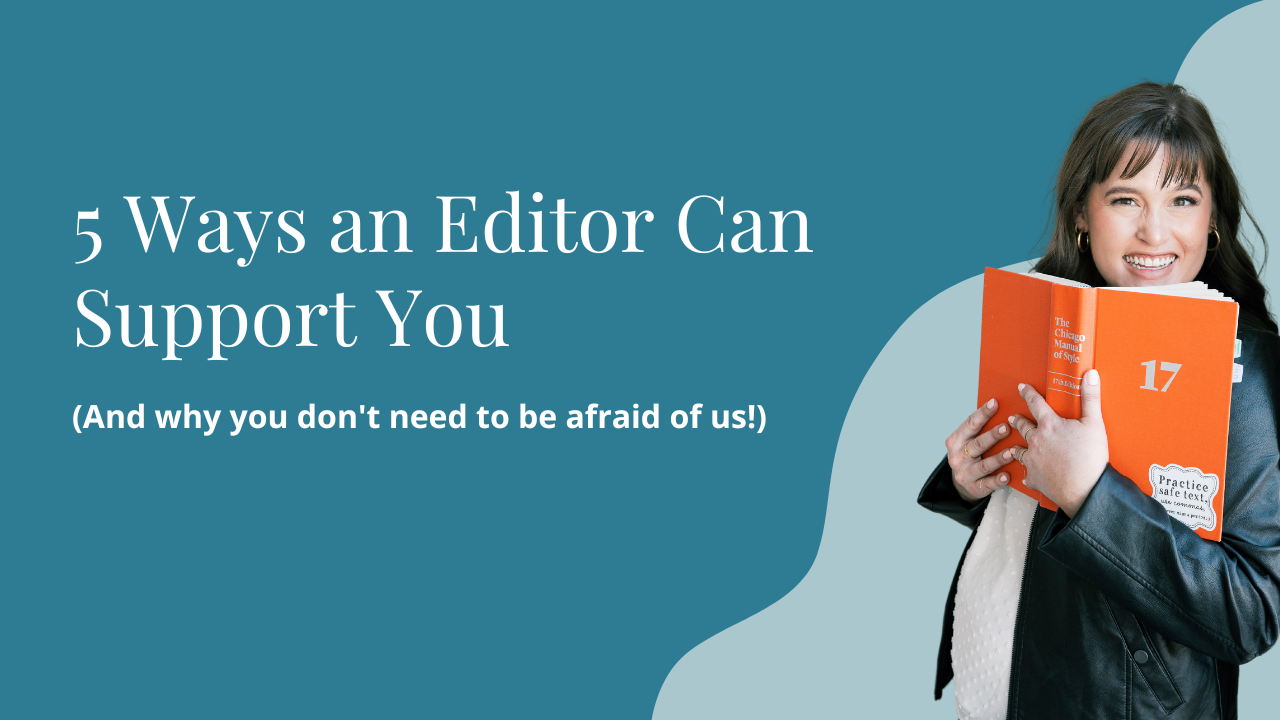5 Ways an Editor Can Support You
Often when I tell someone that I’m an editor, they immediately become self-conscious about the punctuation (or lack thereof) in their texts or the grammar in their emails. What people think editors do probably isn’t what we actually do, at least not all of the time. Do I copyedit and proofread and specifically look for punctuation and grammar errors? Sure. But editors can do so much more than just look for your mistakes.
Editors can give you perspective.
How many times have you looked at your own work for so long that you feel like you’ll go crazy if you had to reread it one more time? By inviting an editor into your writing process, you gain an extra set of eyes on your work. Editors can spot logic inconsistencies, unclear references, and can also establish consistency throughout the manuscript. That said, whatever editor you choose to partner with should earn your trust. Sharing your writing with anyone is vulnerable, and your editor should be mindful of that and approach your words with care.
Editors can give you encouragement.
One of my favorite parts of being an editor is telling writers what is working in their manuscript. I love listing and cheering their successes! One of an editor’s biggest tasks is to support and guide your mindset. Highlighting a manuscripts strengths is so much fun for me, and I know that writers feel encouraged, validated, and motivated every time their editor cheers them on.
Editors can reset your mindset.
Mindset is crucial to writing, and a trusted editor can help you spot mental blocks and gently guide you out of them. The emotional process of writing is far from linear, and pulling yourself out of a mental or emotional slump can be overwhelming at best. An editor can get you out of your own head
Editors can refine your manuscript.
Yes, editors can make your manuscript better. Editors are trained to look for everything from syntax and sentence flow to commas and semicolons. Editors will also never make changes without tracking them (i.e., ensuring that you can see every change). A good editor will involve you every step of the way. (Sometimes an editor will make “silent changes,” where they don’t track the edits. This is done only for edits with such minimal impact that tracking them would only add noise to the edits that matter, like double spaces. Your editor should also let you know when they make silent changes and what those changes are.)
Editors can provide a road map—and hold you to it.
So many writers start out just writing and figuring out the rest along the way. An editor can be like a travel agent, giving you an itinerary so that you know what’s coming up, what landmarks to look for, and where your best check-in points are. In this capacity, editors can also provide accountability. We know that you want to make sure that your manuscript is perfect, but the reality is that you could also go back and change one more thing. Sometimes it’s good to have someone who can tell you when it’s time to move on to the next stop while also being invested in the outcome.
The term editor is really an umbrella word that encompasses everything from coaching, cheerleading, and planning to poring over details, immersion in the text, and yes, subject-verb agreement and vague pronouns. As the writer, you can find an editor who will fill the role that you need them to fill. (If you want to learn more about my style of editing and how I can help you as a writer, feel free to book a free 30-minute strategy call.)
The most important thing to remember is this: Editing = partnership. Full stop.


